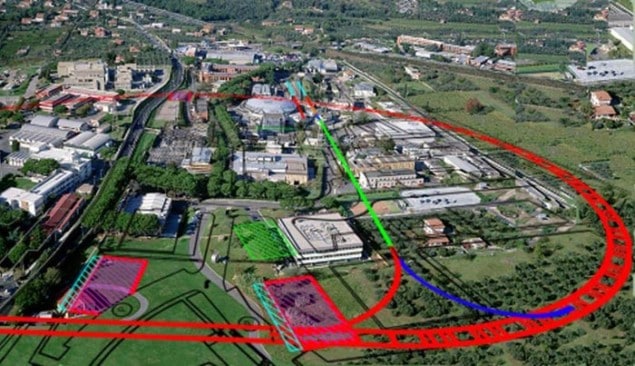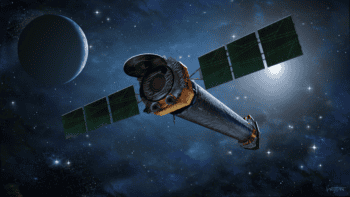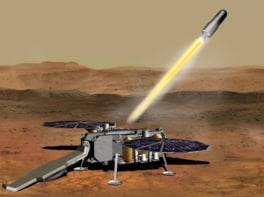
Physics World can confirm rumours that the Italian government is to withdraw €250m from the €1bn SuperB particle accelerator, which was set to be built at the University of Tor Vergata on the outskirts of Rome. The decision, which effectively cancels the project, was made yesterday when Fernando Ferroni, president of the National Institute for Nuclear Physics (INFN), met Italian science minister Francesco Profumo to discuss funding for the project. “Given the difficult economic conditions of the country, the government is willing to confirm the contribution of €250m but not [for] the project,” says a government statement, which was released today and seen by Physics World.
As outlined in the statement, the INFN, which was set to build SuperB, will keep the €250m but will now spend the money on other projects. The INFN has already appointed two committees to look at what options it has, which includes converting SuperB into a scaled down “tau-charm factory” (called SuperC) or using the money elsewhere. The committees will report by 20 December, with a decision set for early January. Rumours of the funding cancellation first emerged on the blog A Quantum Diaries Survivor, which is written by the CERN-based researcher Tommaso Dorigo.
Mystery of antimatter
SuperB was designed to produce beams of electrons and positrons inside a linear accelerator to an energy of 6.7 GeV before injecting them into two rings each more than 1 km in circumference, where they would have then been collided to allow the decay of particles such as B mesons. The accelerator was expected to study the subtle differences in how particles and their antiparticles decay and could help shed light on the mystery of why there is so much more matter than antimatter in the universe.
One of the first things physicists were planning to look for is “charged lepton flavour violation” such as a tau lepton decaying into three muons without producing any neutrinos. The observation of such decays would point to new physics beyond the Standard Model. Indeed, earlier this year, physicists announced plans to add a free-electron laser to the facility, which would allow a range of research in materials science, biology and medicine, at a cost of around €75m.
Thumbs up?
Adrian Bevan from Queen Mary University of London – who is part of the UK’s SuperB contingent – told Physics World that the funding and construction plans for the project had only just undergone an independent review, which seemed to have given the project the thumbs up. Theoretical physicist Giorgio Parisi from the Laboratori Nazionali di Frascati, Rome, who has been a supporter of the project, told Physics World that he was “very disappointed” by the news.
SuperB was set to be built at a new site at the University of Tor Vergata called the Cabibbo Laboratory in honour of Italian particle physicist Nicola Cabibbo, who died in August 2010. The project would have been a competitor to Japan’s SuperKEKB – an upgrade to the existing KEKB collider – that is expected to come online by 2014 and will be able to produce more than 50 billion pairs of B mesons.



